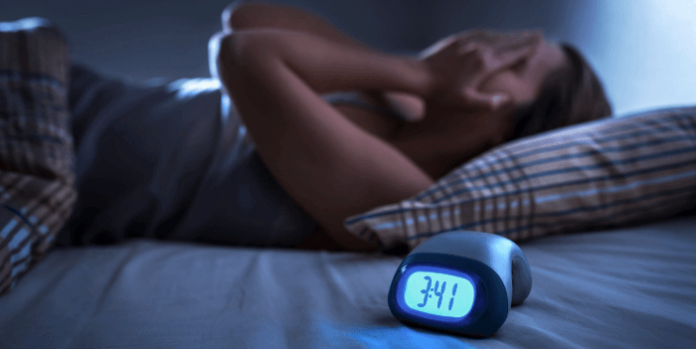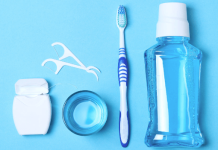The ongoing pandemic has affected our lives in numerous ways, and one of the most common issues many people are facing is sleep disturbances and insomnia induced by Covid-19 related stress and anxiety. The disruption in daily routines, uncertainty about the future, and increased screen time have all contributed to sleep problems for a significant portion of the population. In this article, we will explore some natural remedies that can help improve sleep quality and combat Covid-induced insomnia.
How Covid-19 Affects Sleep
The stress and anxiety related to the Covid-19 pandemic can have a profound impact on our sleep patterns. Heightened worries about health, job security, and the well-being of loved ones can lead to difficulty falling asleep and staying asleep throughout the night.
The Importance of Sleep
Sleep is essential for our physical and mental well-being. It plays a vital role in maintaining a robust immune system and helps in the body’s healing and repair processes. Getting sufficient, restful sleep is crucial for maintaining overall health, especially during challenging times like a pandemic.
Establish a Consistent Sleep Schedule
Maintaining a consistent sleep schedule can help regulate the body’s internal clock, making it easier to fall asleep and wake up at the desired times. Even on weekends, try to stick to the same sleep and wake-up times to establish a healthy sleep pattern.
Create a Relaxing Bedtime Routine
Engaging in calming activities before bedtime can signal the body that it’s time to wind down. Consider activities such as reading a book, practicing gentle yoga, or taking a warm bath. Avoid screen time at least an hour before bed, as the blue light emitted by electronic devices can disrupt sleep.
Optimize Your Sleep Environment
Ensure your sleep environment is conducive to rest. Keep your bedroom cool, dark, and quiet. Invest in a comfortable mattress and pillows that support your body’s needs. Consider using blackout curtains to block out any external light that might interfere with sleep.
Limit Caffeine and Alcohol Intake
Caffeine and alcohol can interfere with sleep patterns. Limit your consumption, especially in the evening hours. Instead, opt for soothing herbal teas that can promote relaxation and improve sleep quality.
Engage in Regular Exercise
Regular physical activity can help reduce stress and anxiety, making it easier to fall asleep at night. However, try to avoid intense workouts close to bedtime, as it may leave you too energized to sleep.
Practice Mindfulness and Meditation
Mindfulness and meditation techniques can help calm the mind and reduce racing thoughts, making it easier to relax and fall asleep. Consider guided meditation or deep-breathing exercises before bedtime.
Use Aromatherapy
Certain scents, like lavender and chamomile, have calming properties that can promote better sleep. Try using essential oils or a soothing sleep spray on your pillow before bedtime.
Herbal Supplements
Herbal supplements like valerian root and passionflower have been used for centuries to improve sleep quality. Consult with a healthcare professional before trying any herbal remedy to ensure it’s safe for you.
Limit Exposure to News and Social Media
Constant exposure to pandemic-related news and social media updates can contribute to anxiety and sleep disturbances. Set specific times to check the news and avoid it close to bedtime.
Seek Professional Support
If sleep problems persist and significantly affect your daily life, consider seeking professional help. Cognitive-behavioral therapy for insomnia (CBT-I) has shown effective results in treating sleep disorders.
Conclusion
Sleep disturbances and insomnia induced by Covid-19-related stress and anxiety are prevalent issues affecting many individuals. Implementing natural remedies can significantly improve sleep quality and overall well-being. By establishing a consistent sleep schedule, creating a relaxing bedtime routine, optimizing the sleep environment, and incorporating mindfulness practices, you can enhance your chances of getting restful and rejuvenating sleep during these challenging times.
FAQs
- Are natural remedies safe to use for improving sleep during Covid-19? In general, natural remedies are considered safe for most people. However, it’s essential to consult with a healthcare professional, especially if you have any pre-existing health conditions or are taking medications.
- Can exercise help with Covid-induced insomnia? Yes, regular exercise can help reduce stress and anxiety, leading to improved sleep quality. However, avoid intense workouts close to bedtime.
- Is it okay to use herbal supplements for better sleep? Herbal supplements can be helpful for some individuals, but it’s essential to consult with a healthcare professional before using them, as they may interact with medications or have potential side effects.
- How can I limit exposure to pandemic-related news without feeling disconnected? Set specific times to check the news and social media updates. Engage in activities that bring you joy and relaxation, and focus on maintaining a healthy balance between staying informed and taking breaks from overwhelming news.
- When should I seek professional help for my sleep disturbances? If sleep problems persist and significantly affect your daily life and well-being, it’s essential to seek professional support. Cognitive-behavioral therapy for insomnia (CBT-I) has shown effective results in treating sleep disorders.
Sources
Mayo Clinic: https://www.mayoclinic.org/healthy-lifestyle/nutrition-and-healthy-eating/expert-answers/weight-loss/faq-20461998
Harvard Health Publishing – Harvard Medical School: https://www.health.harvard.edu/topics/weight-loss
National Institute of Diabetes and Digestive and Kidney Diseases (NIDDK) – National Institutes of Health (NIH): https://www.niddk.nih.gov/health-information/weight-management
Centers for Disease Control and Prevention (CDC): https://www.cdc.gov/healthyweight/losing_weight/index.html
American Heart Association: https://www.heart.org/en/healthy-living/healthy-eating/losing-weight




